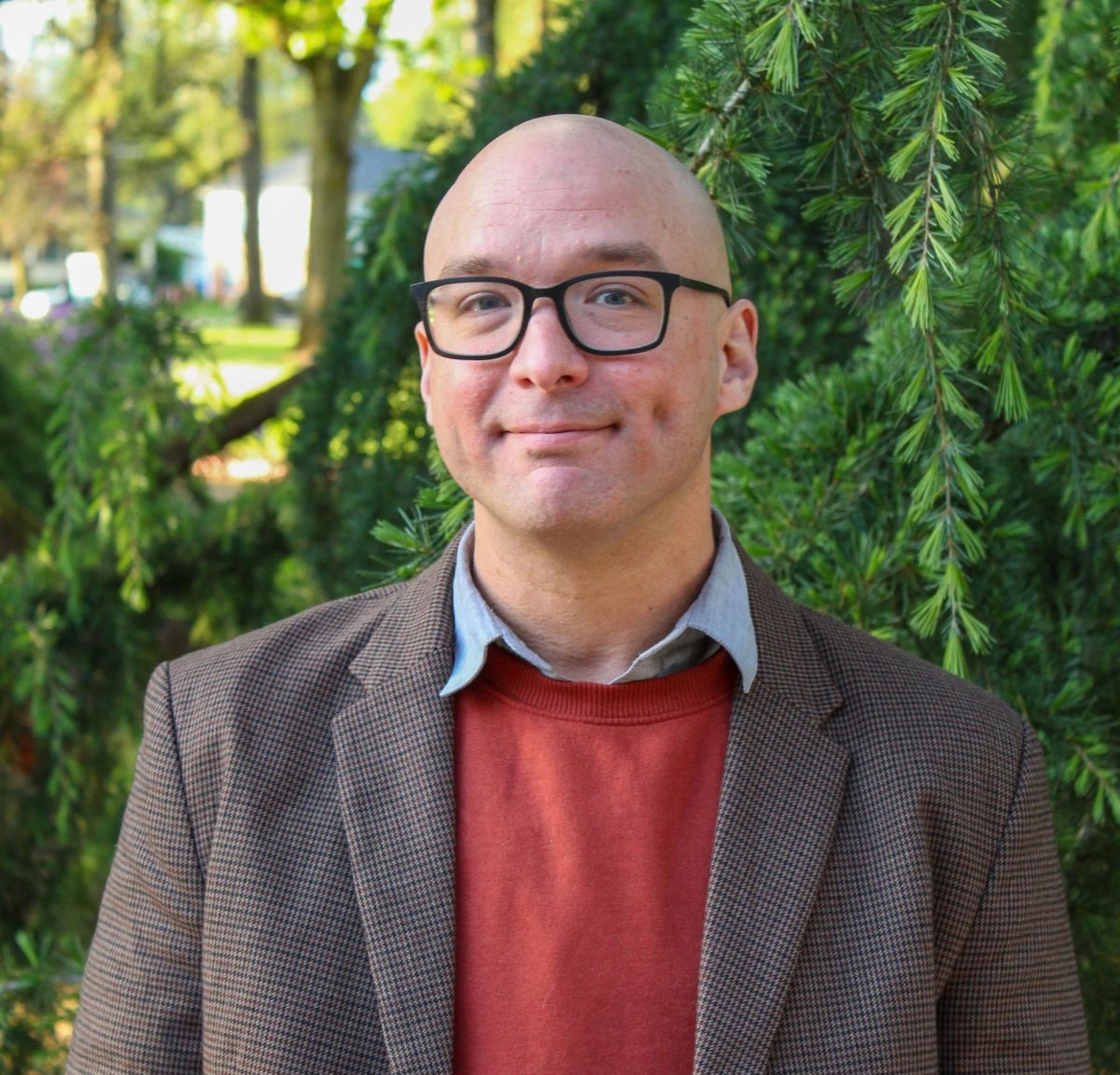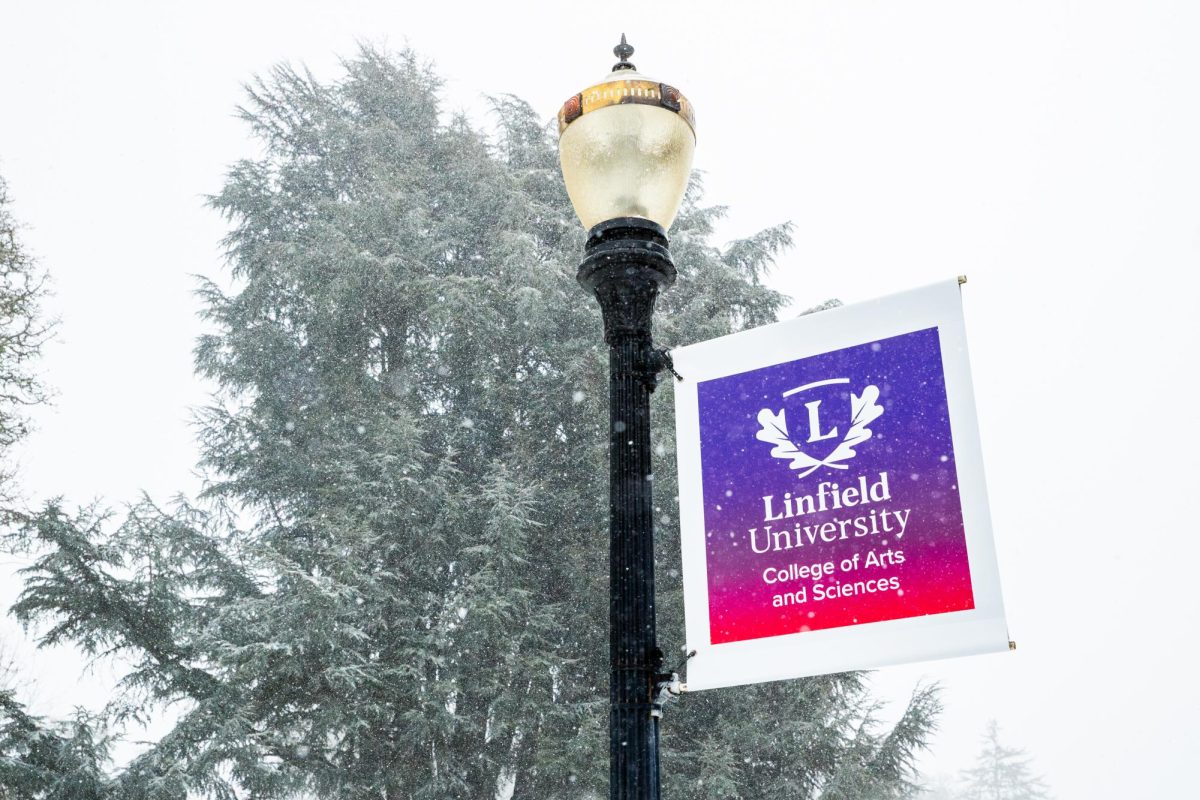Growing up in Boston, Robin Barklis was surrounded by professors. His dad, who now teaches at the Oregon Health and Science University, would always host other professors at the family’s home.
A few decades later, Barklis is now an associate professor in Linfield’s political science department — just 40 miles southwest of OHSU.
“I literally was born at Harvard,” Barklis said. “And so professors to me were never special people.”
Barklis would often talk to the visiting professors about their fields of study, building rapport with them.
“I also assumed that all professors treated people the way these guys treated me,” Barklis said. “They would have conversations with me as an equal.”
Even now, Barklis sees professors as being just like everyone else.
“Guys you’d see 10 minutes before class just wolfing down a double cheeseburger and then would come in and be like, you have to call me professor,” Barklis said. “I’m like, bro, professor, you got barbecue sauce on your shirt. And so I think there was never any mystique that I had to blow away because they were always just dudes over at our apartment.”
Growing up in that environment gave Barklis a foundation within academia. What followed was Barklis becoming a Linfield fan favorite.
“He is one of the most genuinely caring professors or teachers I have ever had the pleasure of being instructed by,” Julia Dillon, a sophomore law, rights and justice major, said. “He is also keenly aware of how toxic political rhetoric and debate has become and goes above and beyond to create spaces in which all sides of the political spectrum feel comfortable.”
The dedication to an open space for all political beliefs is something Barklis has worked hard to foster. For him, this comes after teaching at the University of Oregon, where he got his doctorate in 2016, and seeing the environment there.
“At U of O, you’d have classes, [where] there was 90% of the class who already thought they understood politics completely, and 10% maybe disagreed, but they were too scared to say anything,” Barklis said. “And I would try really hard to bring out the dissent in the 10%, but there’s limits to what you can do as a professor.”
Barklis credits Linfield’s smaller class sizes with allowing him to foster this community. For students, this allows them to learn not just about the topic of the class, but about others’ perspectives.
“He encourages open conversation that considers multiple perspectives,” Hadley Dunham, a senior law, rights and justice major, said. “…which helps us better understand both others and our own values.”
Students also see Barklis as one of the more personable professors on campus. They are often in his office talking about a wide array of topics.
“He leads by example in his intelligence and humility,” Dunham said. “His sense of humor is second to none, and he is able to connect with students our age.”
Barklis goes into the classroom with the mentality that he is on equal terms with students, no matter what class he is teaching.
“I’ve been a student,” Barklis said. “I’m still in some ways a student. There are parts of political theory and parts of political science and parts of law that I just don’t know much about.”
Barklis has a reputation around campus for making self-deprecating jokes, a habit he consciously adopted.
“I want to, in some ways, erase the hierarchy that people come in expecting,” Barklis said. “We’re all people sitting in a room together trying to work stuff out [that] requires of me certain things and also allows me to do certain things that I think wouldn’t be possible if I were more obsessed with hierarchy.“
These jokes make students more comfortable in class, which makes them more engaged and willing to share their own opinions, even if they go against the grain.
Barklis also actively encourages people not to refer to him as a doctor or professor. Everyone, from other professors to students, refers to him by his first name.
“I want [students] to respect me because there’s an underlying reality that is respectable,” Barklis said. “Not because there’s some sheen that they have to use that.”
This makes students more comfortable coming to him about anything they may need help with.
“He is a truly well-rounded and approachable member of the Linfield community,” Dillon said.
Not only does Barklis feel a need to be relatable, he also goes out of his way to help students. He used the example of the latest class he has created, Democracy and Disagreement, and how he made the lesson plan. He taught the class last spring.
“You can look and see who’s getting cited the most,” Barklis said. “What are the books that have become touchstones in the field? Those are the books we’re going to talk about. My job is largely to convey the shape of the field to students.”
This often means sidelining his own interests to craft the best course. While Robin often teaches about political philosophy and law, featuring a deep emphasis on specific thinkers, his true interests lie elsewhere.
“I really like analytic philosophy and analytic political theory,” Barklis said. “By which I mean political philosophy and theory that’s primarily interested in making our terms as clear as possible, making distinctions in concepts when it’s possible, analyzing how our words work and how our concepts fit together.”
Barklis thinks that analytic philosophy can help solve many problems that individual schools of thought don’t have the answer to. He is even writing a book on the matter, focusing on transitional justice, or the process countries use to correct past injustices.
“I have a draft mostly finished,” Barklis said. “I keep finishing it and then going back, going, ‘oh, I have to rewrite this chapter.’”
Despite all this, Barklis doesn’t see himself as anything other than a regular, plain Linfield professor. However, he feels a special connection to the campus.
“If Linfield went away, I wouldn’t look for another professor job,” Barklis said.
Barklis might be 3,000 miles from Boston now, but his adult life is remarkably similar to his childhood: Surrounded by professors.







